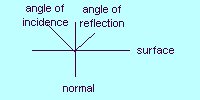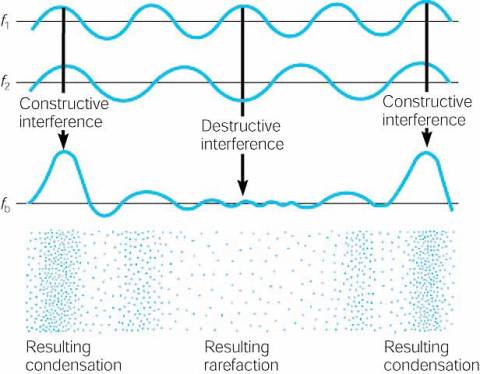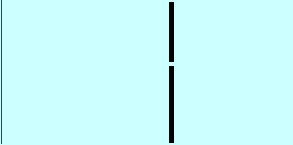
"bouncing back" of a wave


Two waves of equal amplitude but slightly different frequencies interfere destructively and constructively. The result is an alternation of loudness called a beat.
In
Constructive interference, the signs of
the waves are the same and the resulting wave is greater in amplitude than the
individual waves. In destructive interference, the signs of the waves are the
different and the resulting wave is smaller in amplitude than the individual
waves.
Please
use the following applets to watch constructive and destructive interference.
http://users.erols.com/renau/wave_interference.html
http://webphysics.ph.msstate.edu/jc/library/15-11/index.html
this
applet is particularly great if your sound card is working:
http://library.thinkquest.org/19537/java/Beats.html
Diffraction
The ability of waves to bend around the edge of an obstacle in their path is
called diffraction.
Please go to this
web site to read about diffraction.
http://open.dtcc.cc.nc.us/opticianry/oph141/diffract.htm

When a pebble is
dropped into a pool of still water, a circular wave is generated that travels
away from the point where the pebble entered. The farther the wave goes from the
point where the pebble entered the water, the straighter the wave becomes.
But if a barrier with a
small opening stops the wave, the small part of the wave that passes through the
barrier becomes circular again -- as if the pebble had been dropped into the
water at that point.
We say that the wave
has bent around the barrier, or that it has changed directions: Where the wave
was traveling in a straight line before passing the barrier, it has now 'bent'
or changed directions after passing the barrier.
DIFFRACTION
of a wave is the bending or redirection of the travel of the wave when it passes
a barrier without changing the medium in which the wave is traveling.